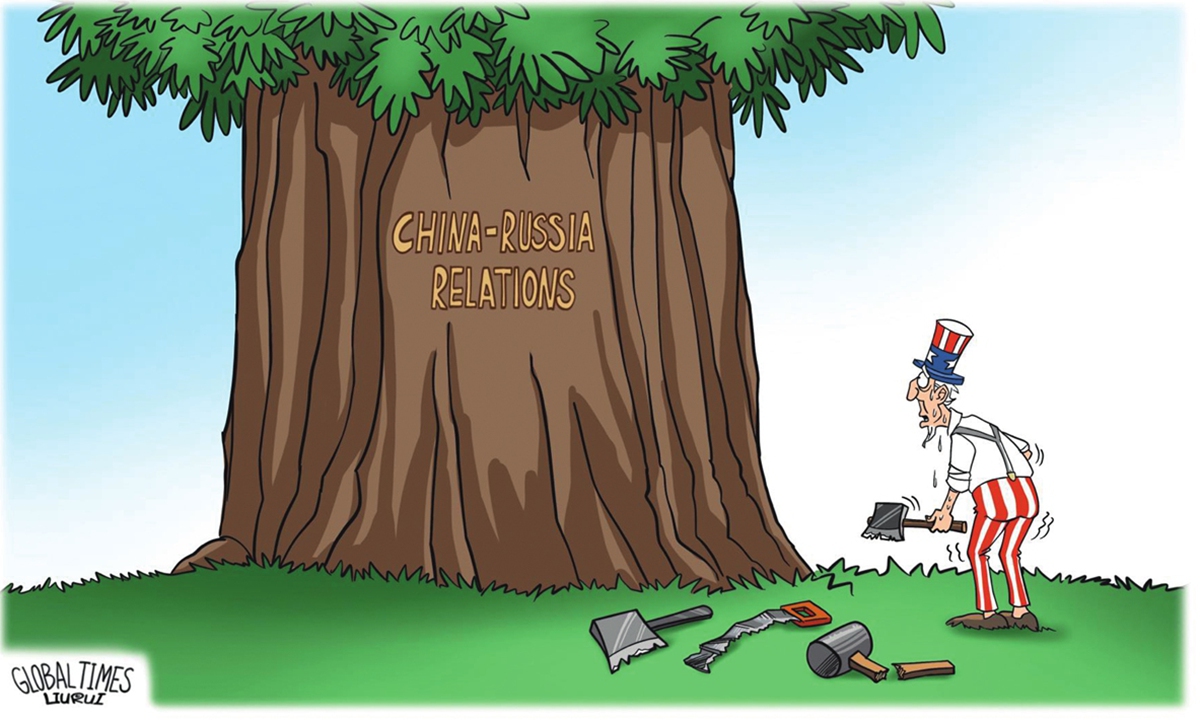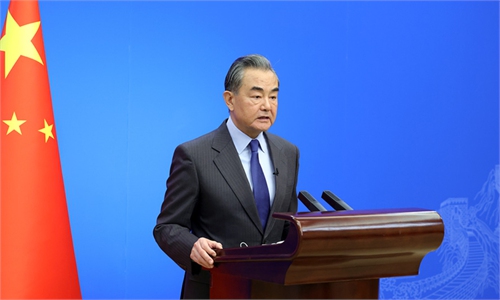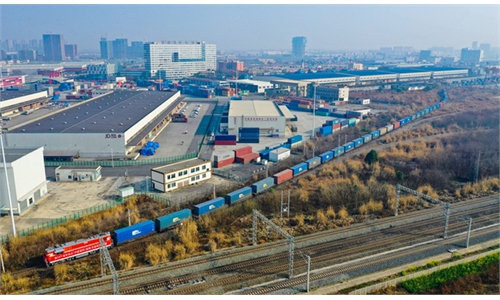
Illustration: Liu Xidan/GT
Wang Yi, a member of the Political Bureau of the CPC Central Committee and director of the Office of the Central Commission for Foreign Affairs, will kick start his visit in Russia. This is also the last stop of Wang's European tour and has received significant international attention. According to Chinese Ministry of Foreign Affairs, Wang's visit to Russia has two main focuses: first, focusing on the development of China-Russia relations of the next stage; second, having an in-depth exchange of views on international and regional hotspot issues of shared concern. In the face of an increasingly fragile and imbalanced international security situation, as two major powers neighboring each other, the healthy and stable development of bilateral relations is beneficial to world peace.
As the one-year mark of the outbreak of the Russia-Ukraine conflict approaches, and with the West having largely cut off contacts with Russia, there is understandably much attention paid to the interactions China and Russia have on this hot-spot issue and what signals they may send.
However, some voices from the West are obviously much more than expressing "concern." They are attempting to hijack China-Russia relations through the Russia-Ukraine conflict. They either hype up a China-Russia "alliance," or try to drive a wedge between Beijing and Moscow, saying their friendship won't last long. US Secretary of State Antony Blinken even baselessly claimed that China is considering providing "lethal material support to Russia," including weapons as well as ammunition. The goal of shaping the narrative is to deliberately create an atmosphere that normal interaction between China and Russia is a mistake and to put pressure on every normal interaction between China and Russia.
The US has been wearing thick tinted glasses to view China-Russia friendly ties from the very beginning, and has become even more aggressive in this regard after the outbreak of the Russia-Ukraine conflict, as if it has found a "moral" excuse. However, it is neither qualified nor credible to do so. In fact, regardless of whether there is a conflict between Russia and Ukraine, the US, from the bottom of its heart, has never wanted to see the development of China-Russia relations. The suspicions, provocation, and sabotage from Washington toward China-Russia ties have never stopped, and now they have reached a peak because of the conflict. The US strategic community once seriously discussed the possibility of containing China with Russia's help a few years ago. Former president Donald Trump had made relevant attempts during his term in office, which shows that Washington's thoughts on China-Russia relations have never been pure, and always mixed with dark geopolitical calculations, which can hardly be hidden even if Washington puts up a hypocritical mask now.
Due to similar geopolitical calculations, the US has repeatedly added fuel to the fire and instigated confrontation in the conflict between Russia and Ukraine, which is the root cause of the continuous bloodshed on the European continent. However, the development of China's relations with other countries has always been frank and open. Just as Wang mentioned during a recent meeting with Blinken, the China-Russia comprehensive strategic partnership of coordination for a new era is built on the basis of non-alliance, non-confrontation and non-targeting of third countries, which is within the sovereign right of any two independent states. We do not accept the US' finger-pointing or even coercion targeting China-Russia relations.
Before visiting Russia, Wang met Ukrainian Foreign Minister Dmytro Kuleba on the sidelines of the MSC. According to media reports, Kuleba shook hands tightly with Wang upon meeting. The Ukrainian side values China's position on political solutions to the crisis, said Kuleba during the meeting, emphasizing that he hopes China can continue to play a constructive role.
While Blinken made irresponsible accusations against China, Ukrainian President Volodymyr Zelensky stated in an interview that "Kiev does not have any evidence that China provides military support to Russia." But it seems that Ukraine's attitude and ideas only become important to some in the West when they are deemed "useful."
China does not want to see the outbreak of the conflict, nor does it want to see the Ukrainian crisis being escalated and protracted. This is a very sincere attitude. Shortly after the outbreak of the conflict, the Chinese side raised four propositions: the sovereignty and territorial integrity of all countries should be respected, the purposes and principles of the UN Charter should be upheld, the legitimate security concerns of all countries should be taken seriously, and all efforts conducive to a peaceful resolution of the crisis should be supported. China has repeatedly emphasized that there are no winners in conflict and war, there are no simple solutions to complex problems, and that great power confrontation must be avoided. Looking back now, the value of China's position is becoming increasingly prominent. It is not difficult to distinguish who is really calling for dialogue and striving for peace, compared to some countries that are adding fuel to the fire.
Many historical experiences have proven having no contact and dialogue does not help in solving regional and even global problems, but instead often makes the situation more intractable. China and Russia have always maintained an independent and autonomous bilateral relationship, which is a valuable positive asset for both countries and for the stability of international relations. It should also provide more inspiration for international relations, especially against the backdrop of the current complex and difficult situation of the Russia-Ukraine conflict.


